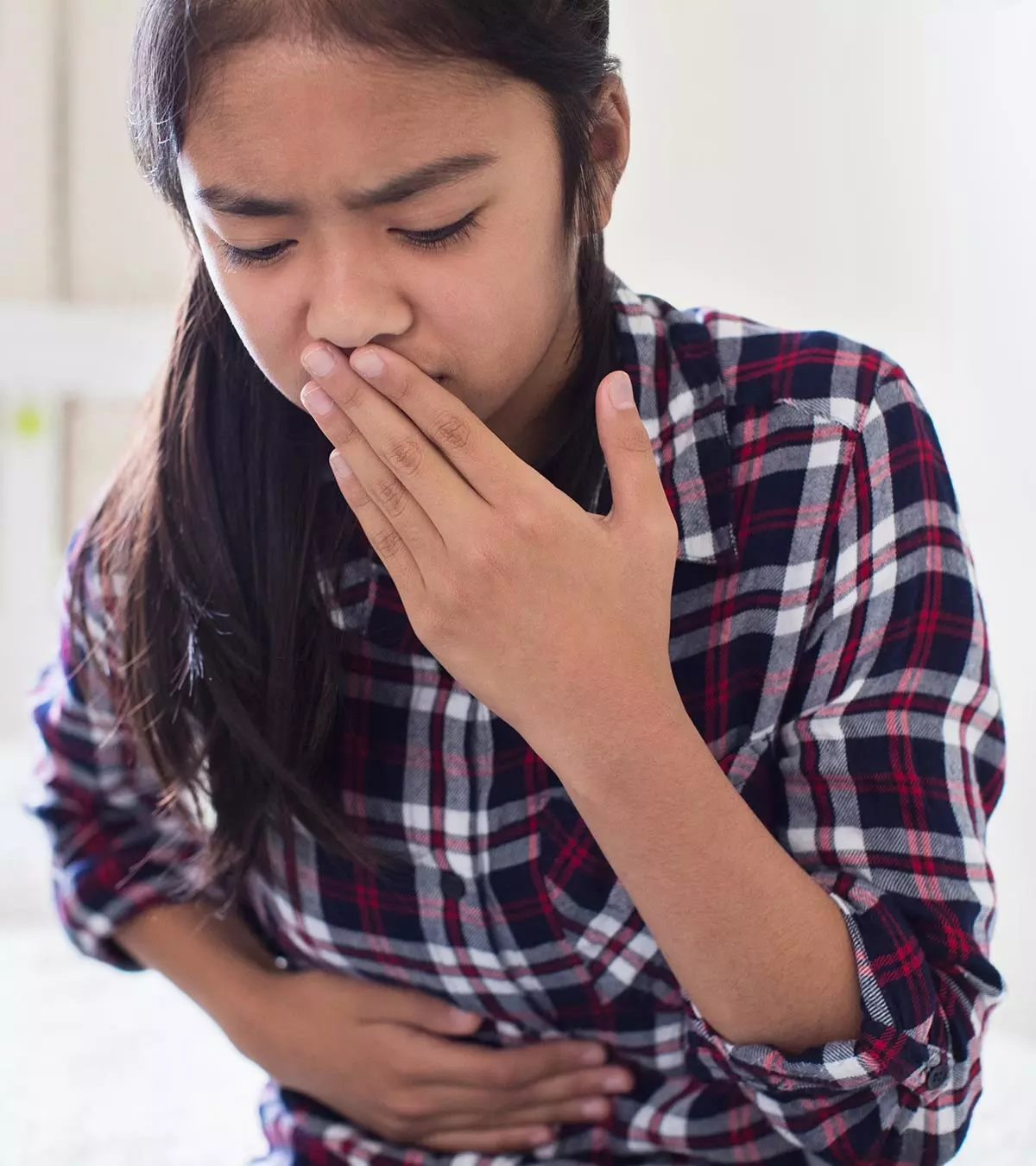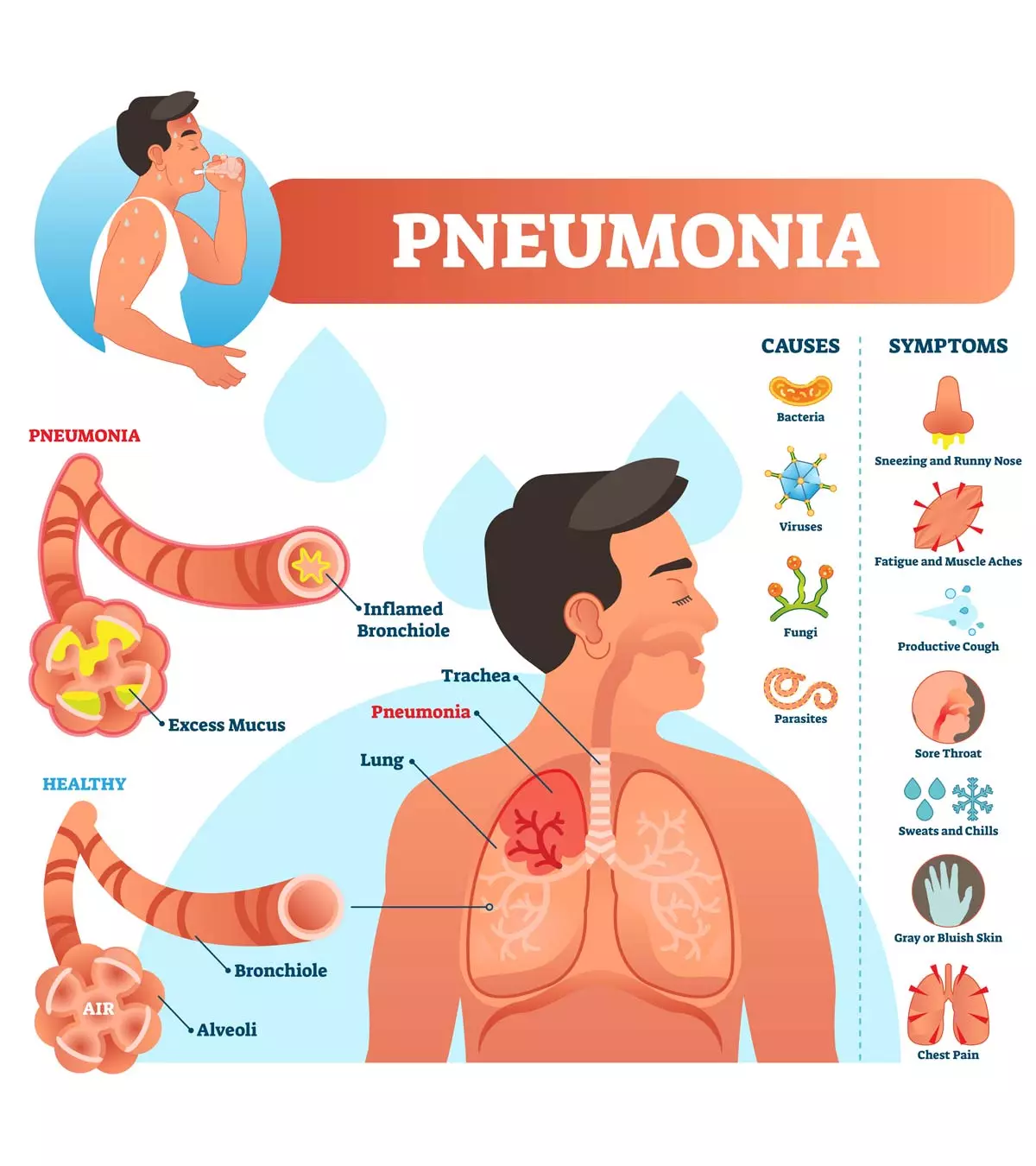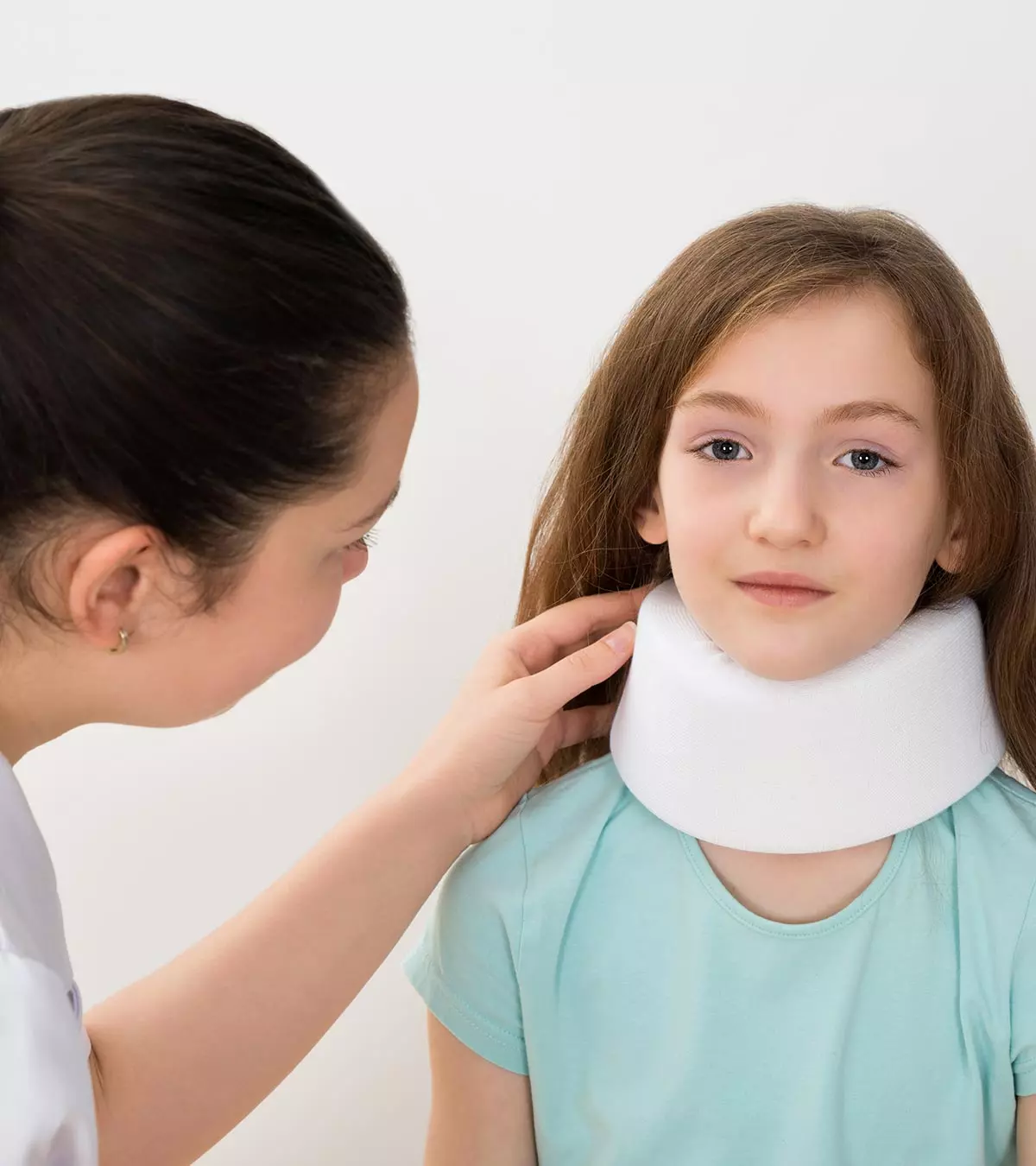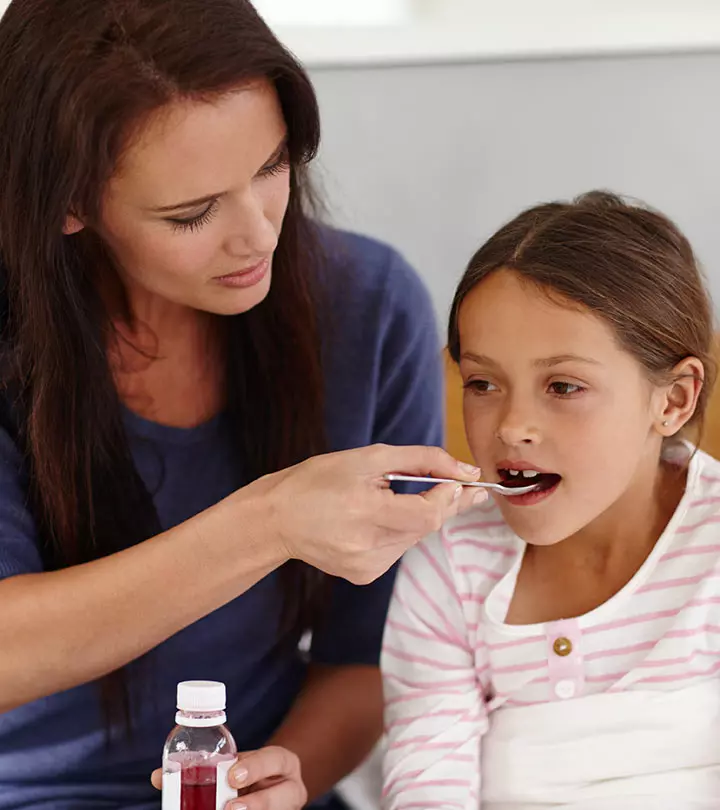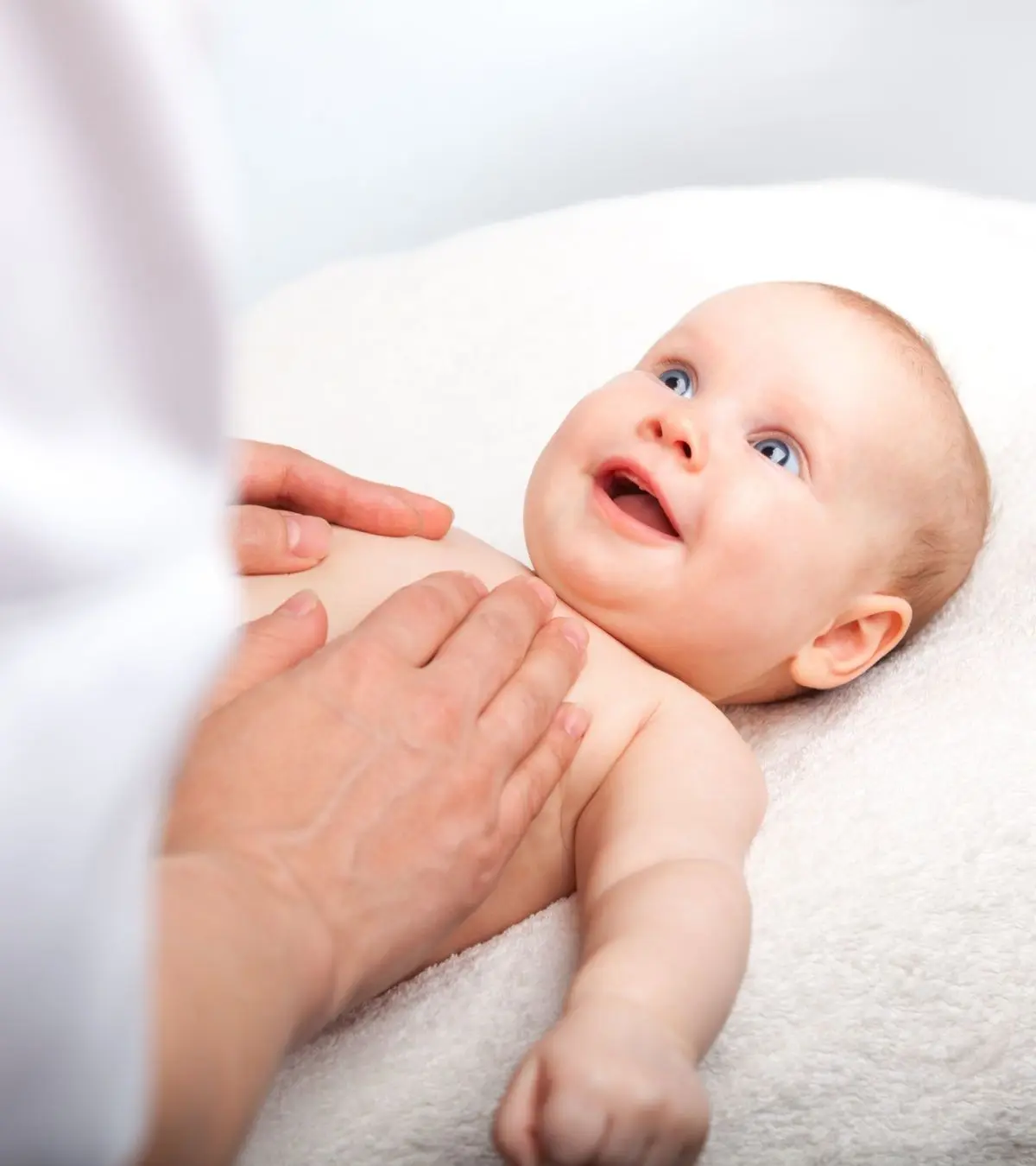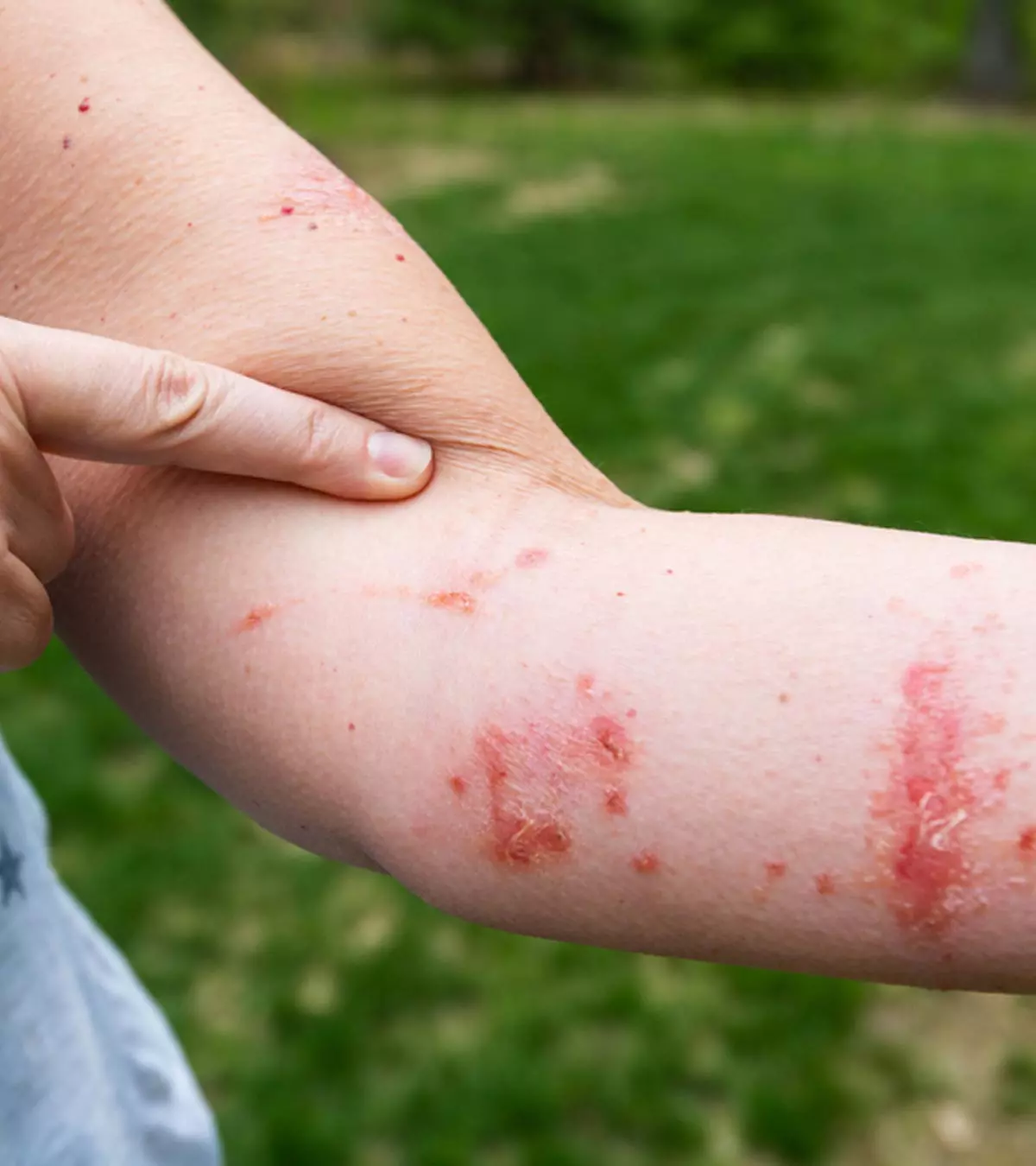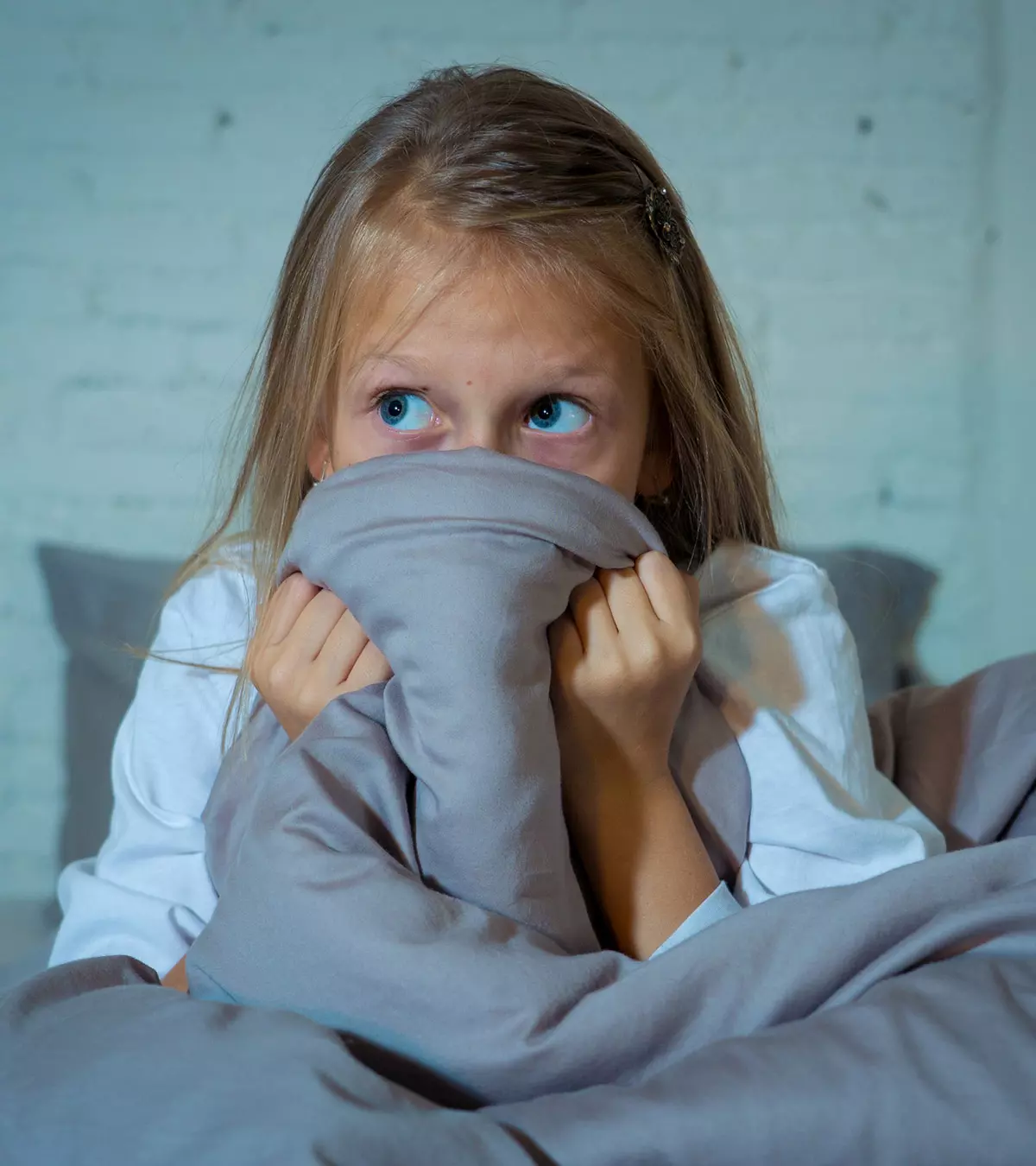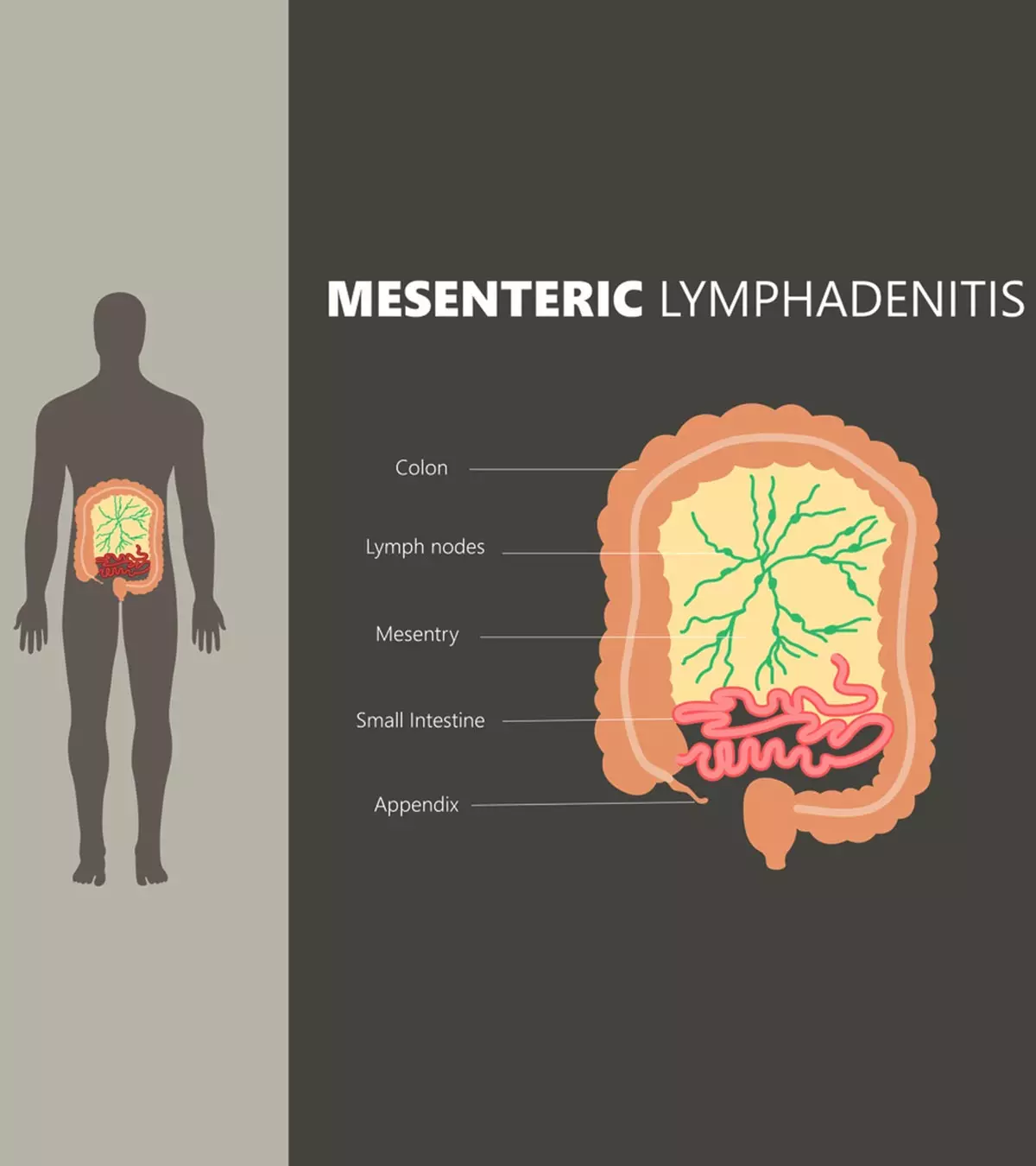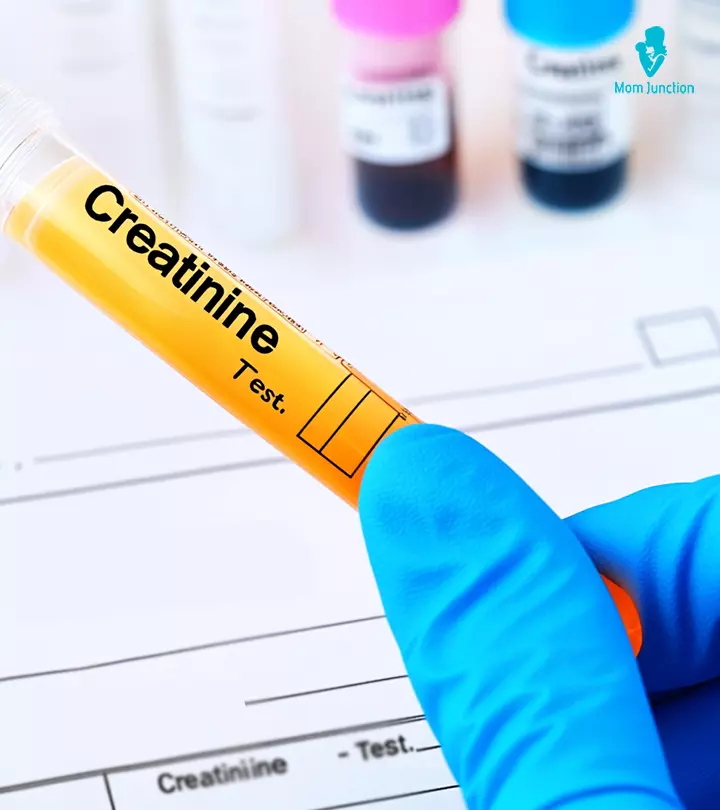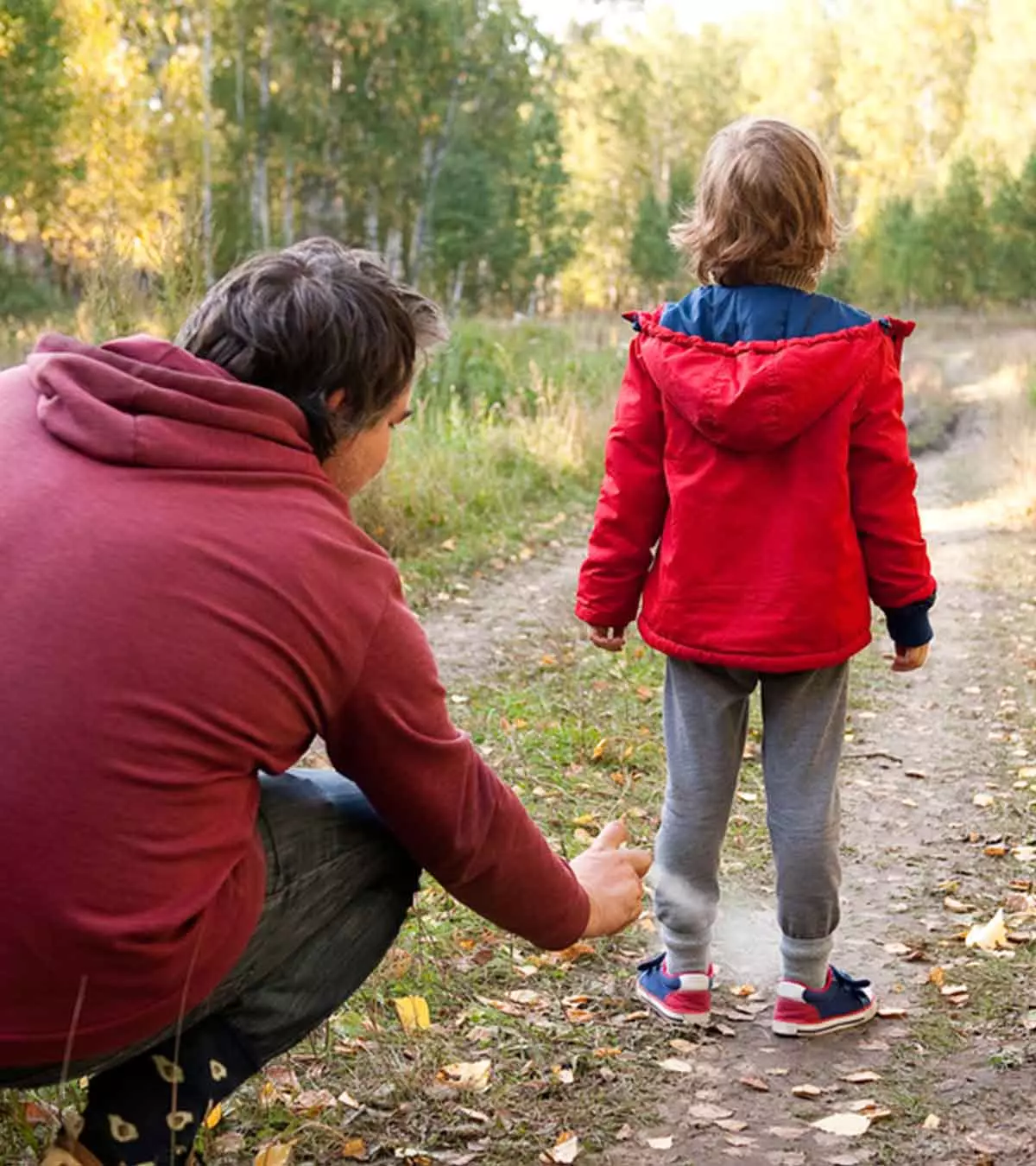
Image: Shutterstock
If a chigger has bitten your child, you may be searching for quick ways to treat chigger bites on kids. Chigger bites are tiny, round, reddish bumps that appear on the skin and could cause swelling and blisters in the affected area (1).
According to the American Osteopathic College of Dermatology (AOCD), they are most likely to appear in areas where clothing fits snugly or where skin folds are present. Common spots include the waistline, groin, armpits, behind the knees, ankles, and lower legs (2). The bumps emerge in groups and may spread to the adjacent areas over time.
These mite bites are common in children who play outdoors, especially in gardens or lawns. Though they are mostly harmless, your child could be uncomfortable due to the constant itching sensation.
This post presents more details on chigger bites in children, including their symptoms, treatment, and prevention.
Key Pointers
- Chiggers are parasites causing a reddish, itchy rash on the skin.
- Chigger bites on children may be treated with OTC anti-itch creams and lotions, but consult a doctor if the symptoms are severe or accompanied by fever.
- Home remedies such as using lemon juice, aloe vera gel with peppermint oil, or apple cider vinegar may be used to ease itching and pain.
What Causes Chigger Bites?
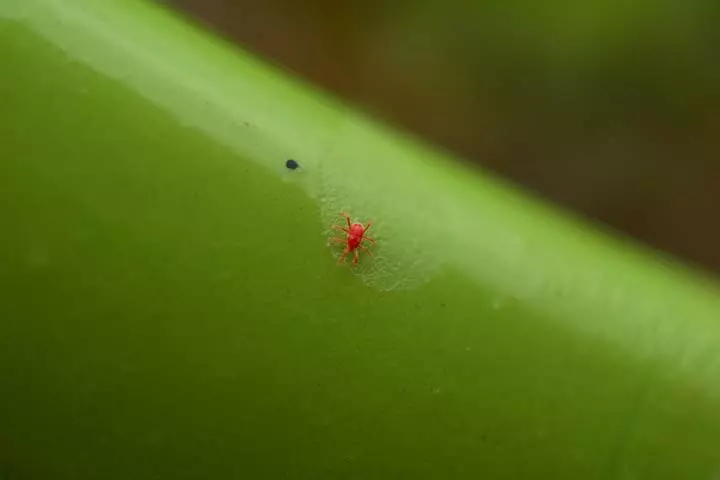
Chigger bites, medically known as trombiculosis, are rashes caused by chiggers, the larvae of trombiculid mites, also known as red mites, red bugs, or harvest mites. Baby chiggers, not adults, are the ones that bite humans and animals. These tiny pests are commonly found in various outdoor environments, such as grassy fields, forests, and near lakes or streams. These mites are barely visible to the naked eye (3).
These parasitic mites attach themselves to the skin of humans and animals. They cling onto the skin surface with their claws, and then pierce the skin and inject saliva, which dissolves the skin cells. The chigger larvae feed on the dissolved skin cells for a few days and fall off, leaving a red bump (4).
Signs And Symptoms Of Chigger Bites In Children
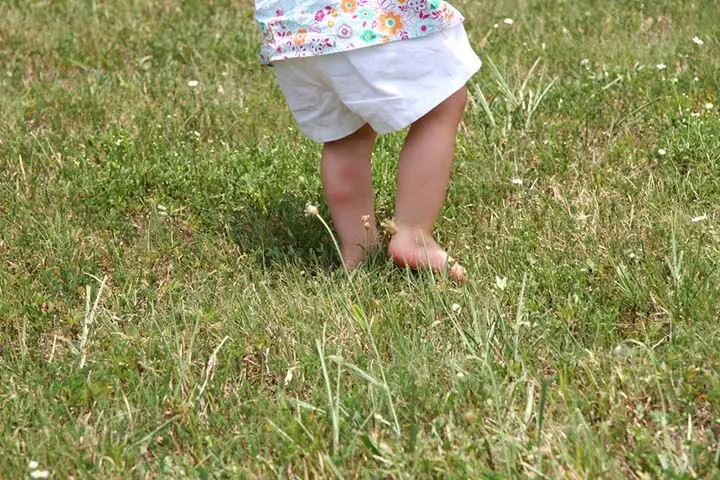
Chigger bites cause skin rashes in children that are often seen in areas where the clothing is tight or the skin is folded and generally appear in groups.
Some of the prominent symptoms of chigger bites are (5):
- Round, reddish bumps on the skin (can appear in clusters)
- Severe itching and discomfort
- Swelling and pain
- Allergic reactions
Sometimes, these chigger bites might appear on the penis and cause summer penile syndrome, which may exhibit symptoms such as (6):
- Swelling of the penis
- Itching
- Painful or weak urine stream
A study on chigger bites affecting the penis, conducted with 94 children aged seven months to 11 years, revealed additional symptoms not previously documented. The report states, “In addition to edema, findings on physical examination included a papule or bite puncture mark in 50% of patients, erythema in 32%, and excoriation in 6% of patients. Fifty-six percent of patients had bites on other areas of the body (6).”
Chigger bites may also cause a disease called scrub typhus, which is a bacterial infection. Scrub typhus symptoms can vary. Some people experience a gradual onset of headache, loss of appetite, and feeling unwell. In other cases, the disease begins more suddenly, with a high fever, severe headache, and muscle pain throughout the body (7).
Your child’s doctor would do a physical examination to diagnose chigger bites. The doctor might also enquire about your child’s medical history and other symptoms.
 Quick fact
Quick factTreatment For Chigger Bites

A chigger bite may or may not be painful, but it might itch for ten to 21 days. If your child does not show any serious signs of infection, the chigger bites can be treated with some over-the-counter (OTC) medications. Here is what you could do if you spot chigger bites on your child (8) (9):
- Ask them to shower and scrub the skin with antiseptic soap to get rid of any chiggers attached to the skin.
- Wash the clothes, blankets, or towels that your child has touched to kill any chiggers latched onto them.
- Apply OTC anti-itch creams or ointments, such as calamine lotion or hydrocortisone cream, to relieve the itching and pain.
- A study published in the Journal of the American Medical Association suggests that ethyl chloride spray can effectively relieve itching from chigger bites (10).
- If the itching persists, contact your doctor, and they might prescribe antihistamine for kids.
- If your child has a fever or chills, take them to the doctor and do not use OTC medications, such as Ibuprofen.
The itching and bumps might subside in a week or two. During this time, make sure your child does not scratch or squeeze the bumps as it might lead to infection in the form of impetigoiA contagious bacterial skin infection that causes sores and blisters, especially in children and cellulitisiA non-contagious bacterial skin infection that makes the infected area red, swollen, and painful (11). It’s also important to consider the kid’s skincare during this time to avoid further irritation or discomfort.
Home Remedies For Chigger Bites
You could also use some of these home remedies to ease the itching and swelling caused by chigger bites. However, note that these home remedies do not have any scientific backing to prove their effectiveness, and it is important to speak to your doctor before trying these remedies.
- Anecdotal evidence suggests that putting a cold compress on the chigger bites might ease the itching and swelling (12).
- Lemon has antiseptic and antimicrobial properties. So, it might help in reducing swelling and itching (13).
- Mix one-fourth cup of aloe vera gel with a drop of peppermint oil and rub it over the bumps. It might help soothe the area and ease the itching.
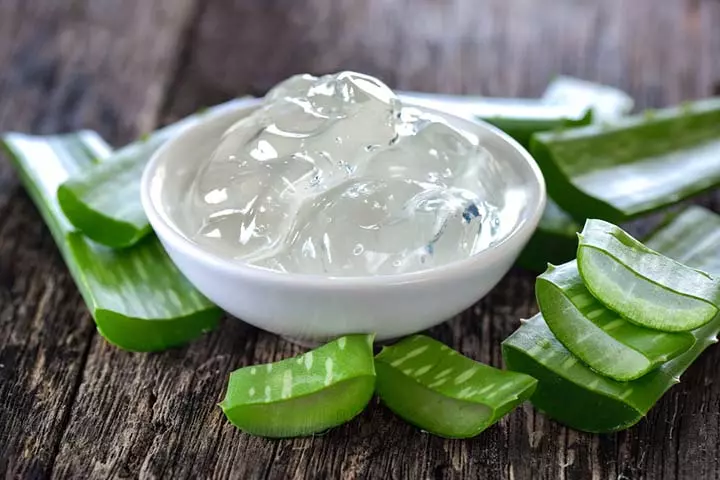
- Oatmeal is said to have antioxidant and anti-inflammatory properties, which are important to soothe the itching. Add two to three cups of oats in water, gently scrub the chigger bites, and rinse it off (14).
- Anecdotal evidence suggests that apple cider vinegar contains antiseptic properties and can help ease the pain and itch from chigger bites. However, use this with caution in case the bites appear infected.
- Soaking the mite bites in baking soda or Epsom salti Epsom salt water might also help relieve the itching.
The popular belief that applying nail polish “kills” chiggers is incorrect. Applying nail polish may offer some relief from itching, but its use to treat bites or kill chiggers is usually not advised (15) (9).
Prevention Of Chigger Bites
Observe these precautions to protect your children from chigger bites (16).
- Make sure your children wear long-sleeved shirts and full pants while playing outdoors. Instruct them to avoid going to areas with tall grass and dense vegetation.
Chris Helzer, an ecologist, shares a vivid memory from his childhood about being bitten by chiggers at Boy Scout camp. He says, “One summer when I was a kid at Boy Scout camp, some researchers were studying chiggers and did pre-camp and post-camp counts of red bumps on Scouts. Due to an unfortunate “wilderness survival” outing, during which I “slept” all night in tall grass, I was deemed the champion of chigger week by those researchers when my chigger bite count exceeded 900. That is not an exaggeration. I spent much of the latter half of that week hiding behind trees where I could scratch the more private areas of my body, where itching was most severe (i).” - Apply anti-bug ointments all over your child’s body before they go out to play.
- Spray your child’s shoes, boots, and backpacks on the outside with anti-bug sprays containing DEET to repel the chiggers (17). Don’t allow DEET to come in direct contact with the child’s skin as it is a toxic compound.
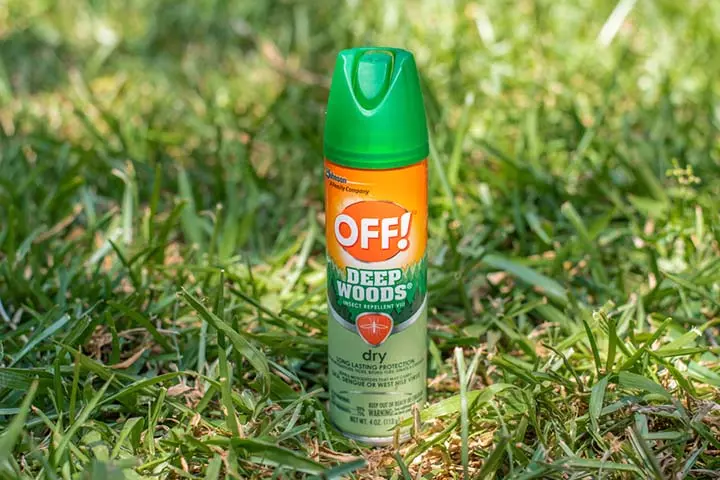
- Tuck in your child’s pant legs into their socks to prevent the exposure to chiggers.
- Apply children-safe essential oils, such as citronella, tea tree oil, jojoba, and lemongrass. They might work as insect repellents.
- Check them for chiggers after playing outdoors.
- Instruct your children to have a hot shower as soon as they come home after playing outdoors.
When To See A Doctor?
Chigger bites usually do not cause harm and are treatable using OTC medications. However, it is best to consult your doctor if (12) (18)
- The OTC medications do not help in relieving the symptoms.
- The bite is warm, swollen, tender, or filled with pus.
- Your child develops allergic reactions, fever, chills, nausea, and vomiting, or has trouble breathing.
- A fever of 100.4°F or higher.
- Ongoing pain or itching.
 Caution
CautionChiggers do not transmit diseases, but there is a chance for the wound to get infected if your child scratches or pinches the bumps. Also, chiggers cannot burrow and enter the skin; they only live on the outer layers of the skin, feed, and fall off. These bites are also not contagious, so you can allow children to perform all normal activities unless there is severe itching.
Frequently Asked Questions
1. Which children are at risk for chigger bites?
Children who spend much of their time engaging in outdoor activities during summers and have exposed skin may be at higher risk for chigger bites (18).
2. Do chiggers lay eggs on my child’s skin?
No, female chiggers lay eggs in sheltered places, in wooded or grassy areas. These eggs hatch to form larvae. The larva is the parasitic stage that attaches to the human skin and feeds on the skin tissue. It falls off once it becomes an adult (8).
3. What are the long-term effects of chigger bites on children?
The long-term effects of chigger bites on children include secondary cellulitis, a bacterial infection causing inflammation of the skin, summer penile syndrome characterized by redness and itching of the penile skin, and the potential transmission of diseases such as scrub typhus. Scrub typhus can cause symptoms such as fever, headache, and body aches (7).
4. Does the size of the chigger affect the severity of the bite in children?
The size of the chigger does not necessarily determine the severity of the bite in children. Chigger bites typically appear as clusters of tiny, inflamed bites. Over time, the bumps may enlarge, leading to increased blistering and itchiness (1).
Although chigger bites on kids do not lead to any serious repercussions, they might be painful and cause itching in the affected area. The itchiness usually takes about a week or two to subside. Thus, it is advised to look out that your child does not scratch the affected area as it might increase the chances of infection. Instead, try the above-mentioned home remedies to provide substantial relief to your child. But in case of a severe infection, contact the doctor immediately.
Infographic: Facts About Chigger Bites In Children
Chigger bites can trigger skin irritation and reactions in some children. Some may have complications such as bacterial superinfection. Go through the infographic to know more about chigger bites in children to identify and avoid them. Illustration: Momjunction Design Team
Illustration: Natural Home Remedies To Treat Chigger Bites On Kids

Image: Dall·E/MomJunction Design Team
Discover everything you need to know about chiggers, tiny pests that can induce itchiness through their bites. Educate yourself on effective measures to safeguard against these insects.
Personal Experience: Source
MomJunction articles include first-hand experiences to provide you with better insights through real-life narratives. Here are the sources of personal accounts referenced in this article.
i. Chiggers Are The Worst.https://prairieecologist.com/2019/07/01/chiggers-are-the-worst/
References
- Chigger Bites.
https://kidshealth.org/en/parents/chiggers.html - Chiggers.
https://www.aocd.org/page/Chiggers - Chigger Bites.
https://www.childrensmn.org/educationmaterials/parents/article/13072/chigger-bites/ - Pests That Affect Human Health- Chiggers.
https://www.thomas.k-state.edu/lawnandgarden/docs/chiggers.pdf - Children and Fleas, Mites, and Chiggers.
https://www.chop.edu/conditions-diseases/children-and-fleas-mites-and-chiggers - Smith GA et.al; (1998); The summer penile syndrome: seasonal acute hypersensitivity reaction caused by chigger bites on the penis.
https://europepmc.org/article/med/9583392 - Chigger Bites and Trombiculiasis.
https://www.ncbi.nlm.nih.gov/books/NBK538528/ - Chigger Bites.
https://my.clevelandclinic.org/health/diseases/23267-chigger-bites - Chiggers: Step Away from the Nail Polish.
https://extension.msstate.edu/blog/chiggers-step-away-the-nail-polish - Richard L. Sutton; (1942); TROMBIDIOSIS (CHIGGER BITES).
https://jamanetwork.com/journals/jama/article-abstract/257217 - Lynette Kosar and Tessa Laubscher; (2017); Management of impetigo and cellulitis.
https://pmc.ncbi.nlm.nih.gov/articles/PMC5555330/ - Flea, Mite, or Chigger Bites.
https://www.urmc.rochester.edu/encyclopedia/content?contenttypeid=85&contentid=p00835 - Ehigbai I. Oikeh et.al; (2016); Phytochemical, antimicrobial, and antioxidant activities of different citrus juice concentrates.
https://pmc.ncbi.nlm.nih.gov/articles/PMC4708628/ - Andrea Perrelli et.al; (2018); Biological Activities, Health Benefits, and Therapeutic Properties of Avenanthramides: From Skin Protection to Prevention and Treatment of Cerebrovascular Diseases.
https://www.ncbi.nlm.nih.gov/pmc/articles/PMC6126071/ - Chiggers.
https://yardandgarden.extension.iastate.edu/encyclopedia/chiggers - Chiggers.
https://health.students.vcu.edu/media/student-affairs-sites/ushs/docs/CHIGGERS.pdf - Using Insect and Tick Repellents Safely.
https://extension.psu.edu/using-insect-and-tick-repellents-safely - Flea, Mite, or Chigger Bites in Children.
https://www.cedars-sinai.org/health-library/diseases-and-conditions—pediatrics/f/flea-mite-or-chigger-bites-in-children.html - Preventing and treating chigger bites on kids.
https://www.childrens.com/health-wellness/preventing-and-treating-chigger-bites-in-kid
Community Experiences
Join the conversation and become a part of our nurturing community! Share your stories, experiences, and insights to connect with fellow parents.
Read full bio of Dr. Pooja Parikh
Read full bio of Dr. Ritika Shah
Read full bio of Swati Patwal
Read full bio of Ghazia Shah












